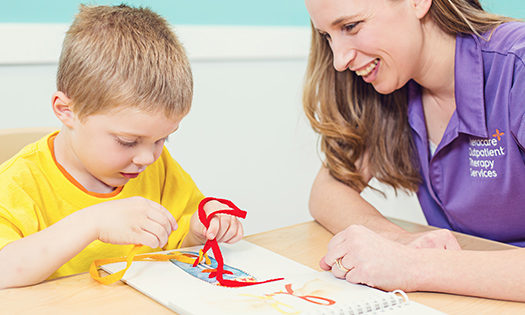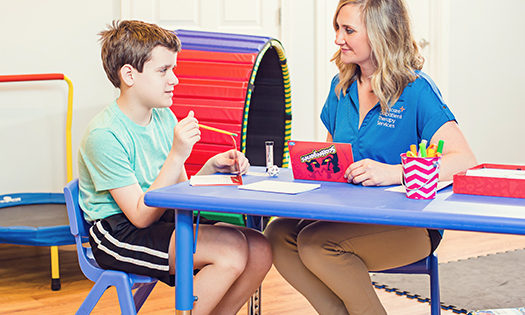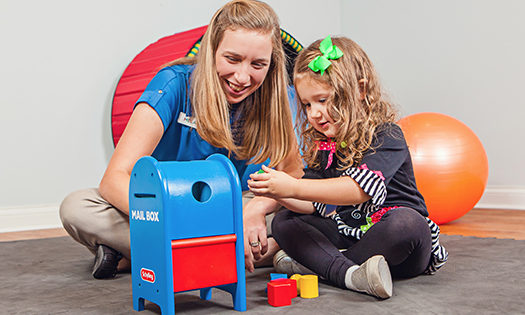-
Therapy Overview
Increasing self-esteem through independence
-
Occupational Therapy
As children grow, they aspire to be independent, learn to do things on their own, and keep up with their peers. Lagging behind other children at seemingly simple daily tasks can be very frustrating. If you notice your child is slow to master everyday activities, this could be a sign of developmental issues. Working with an occupational therapist can help children master hand-eye coordination, fine motor skills, and sensory integration to become more independent while providing them with a sense of accomplishment and bolstering self-esteem.
Treatment sessions could include:
- Sensory Integration
These therapies focus on remediating:
- Gravitational insecurity
- Sensory seeking behaviors
- Tactile defensiveness
- Cognitive Disorganization related to poor neural organization
- Auditory defensiveness
- SOS approach focused feeding training
- Self Care Training
Strategies include:
- Dressing
- Hygiene (bathing, tooth brushing, toileting)
- Simple meal prep
- Sleep strategies
- Fine Motor Training
- Handwriting
Strategies include:
- Hand strengthening
- Hand manipulation
- Bilateral coordination
- Crossing midline
- Adaptive equipment for writing
- Visual Training
- Balance Training
- Motor Planning
- Strength/Endurance Training
- Executive Functioning/Cognitive Training
- Collaborating for IEP Strategies
- Sensory Integration
-
-
Does my child need occupational therapy?
While a therapist would need to conduct an evaluation to determine if your child could benefit from OT, there are some contributing factors and behavioral signs you can appraise independently.
Compared to other children their age:
- Your child is not able to complete self-care activities such as dressing, toileting, or feeding as well.
- Your child has difficulty manipulating tools (utensils, writing implements, scissors, or fasteners) and is unable to master them.
- Your child cannot regulate or control sensations they experience and frequently becomes agitated or has explosive meltdowns.
- Your child cannot keep up with academic work in their classroom as well.
- Your child has extreme difficulty planning how their body moves to play games or interact with toys in their environment.
-
Questions about the right child therapy?




